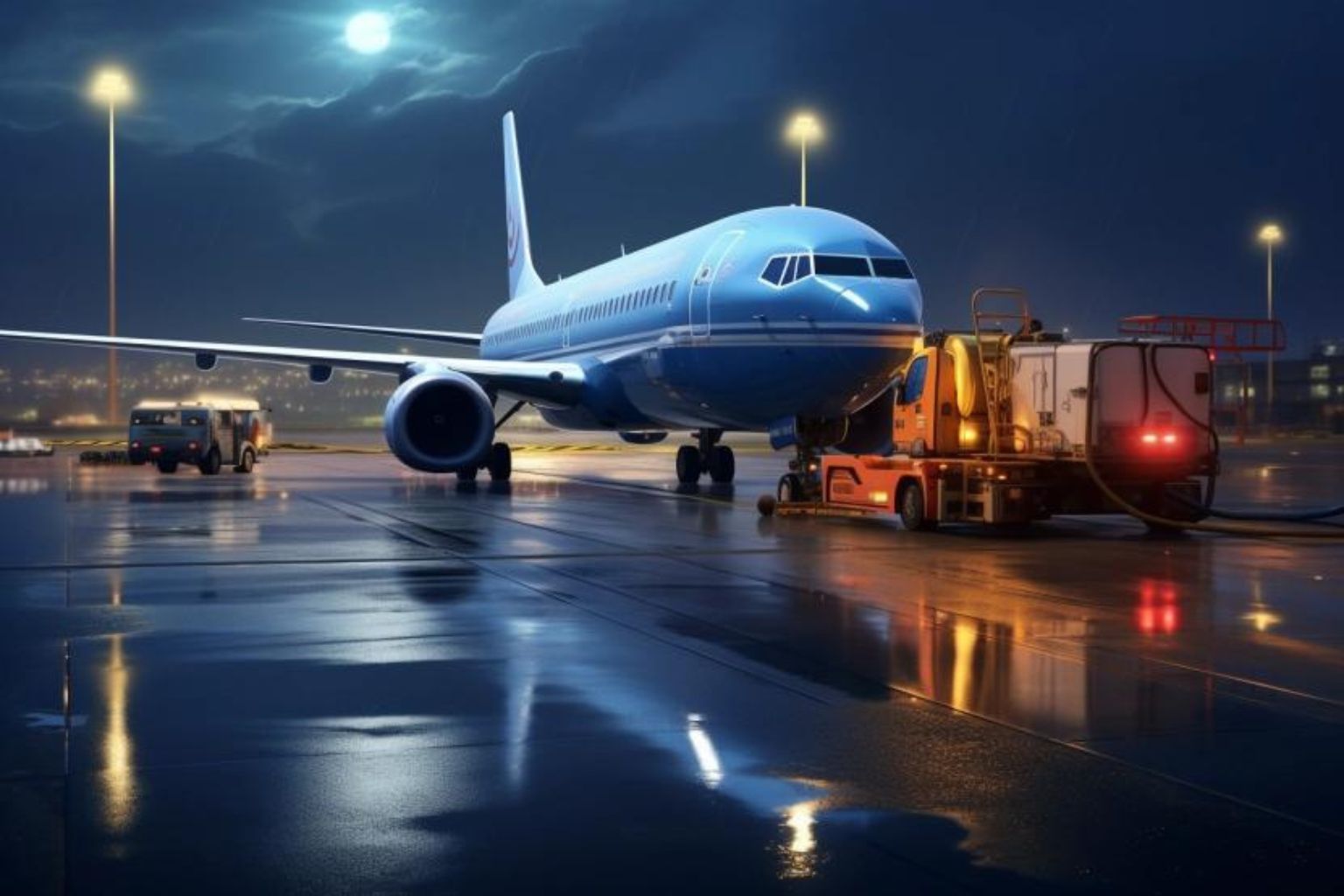If you’ve ever asked yourself, “What will they think of next?” then here’s one possible answer: How about an airline ticket price that rises or falls with the price of fuel?
Sound far-fetched? Yes, but that isn’t stopping Allegiant Air from proposing it. Buried deep within a recent letter to the Transportation Department (PDF), the no-frills carrier drops a bombshell.
“Allegiant is considering a new pricing option for use on its website,” writes its chairman, Maurice J. Gallagher, Jr. “When making a purchase, consumer would be able to choose between a traditional “locked in” fare that would not fluctuate, and a lower fare that could change before the date of travel. That lower fare could be reduced further or could increase (up to a set maximum that would be clearly disclosed) depending on changes in fuel price between the booking and travel dates.”
In other words, Allegiant is prepared to offer you a cheaper ticket if you assume the risk of fluctuating oil prices. If energy prices rise, so does the cost of your transportation. If they fall, you could save money.
Will this fly?
There’s some precedent for asking customers to cover the cost of rising fuel prices, according to aviation analyst Bob Mann.
“I have long predicted that airlines would attempt to place the risk of supply cost fluctuation — fuel being the best example — on the customer,” he says. “It is the way charter carriers have sold to wholesalers and whole-plane charterers for years.”
Fuel-linked charter rates
For example, a carrier might charter a Boeing 747 for a base charter rate of $16,000 per hour at today’s fuel price, as long as fuel prices do not escalate more than ten cents above that fuel price. But if fuel prices increase by more than ten cents per gallon, the carrier is contractually able to levy a fuel escalation charge of $50 per hour for each one cent increase, assessed and payable along with base charter rates, one day prior to departure.
Mann also points out that European carriers already impose fuel surcharges, which act in a similar way to offset the cost of higher fuel.
“It’s easy to understand how airlines can rationalize this,” says Edward Hasbrouck, a consumer advocate and author of The Practical Nomad: How to Travel Around the World. “They want more money, and they want to shift the risk of fuel price increases to passengers.”
But air travelers want clear, simple, fixed prices — not more uncertainty about the cost of a trip. “If people want to speculate on future oil prices, there are commodities markets for that. If airlines want to lock in future fuel prices, they too can go to the markets and pay to buy futures or hedge against price increases,” he adds.
A new consumer group, Airline Passengers, warns against government approval of this scheme. In a letter sent to the DOT this afternoon (PDF), it spells out its objections.
What Allegiant Air is proposing is simply a mechanism for off-loading the normal airline business risk of fuel price increases onto the consumer, where it does not belong. Well-run businesses throughout the economy recognize that there are certain, inherent risks in operations, often including commodity price increases.
The challenge of policing and passenger skepticism
Michael Miller, a vice president of strategy at the Washington-based American Aviation Institute, says even if the government were to green-light these new tickets, it wouldn’t be able to police them. Who’s to say if fuel prices rose or fell between the time someone booked a ticket and flew? And if the airline is pulling an arbitrary number, who will stop it?
“Allegiant is basically trying to put their fuel hedging strategy on the backs of its passengers – pay more now, or pay more later based on a very complex oil market,” he says, adding, “Airfares are complicated enough as it is.”
And what do passengers think?
“One of my initial thoughts is: How likely is it that the price of fuel is going to go down?” wonders Ryan Koch, a manager for a Vancouver-based nonprofit organization, who is an occasional Allegiant customer. “I live in Canada and I know that hasn’t been the case for some time. I would also question how the consumer would truly know whether any fuel increases that Allegiant claims are accurate?”
David Forgues, who works for a university in Las Vegas and is a frequent Allegiant passenger, says he’s skeptical of the airline’s idea.
Insights from travel experts
“I think for the most part I would not buy a ticket at a price that might fluctuate, unless I thought that the current price was high and might go down with time,” he says. “I think Allegiant is being creative here and with the volatility in fuel prices, this might make sense for them. Unfortunately, I don’t know if it makes sense for the passenger.”
Johnna Stell, a Las Vegas travel agent who is familiar with Allegiant, says while this might work for the airline, it doesn’t mean other air carriers should try it. (Here’s how to get a refund on a nonrefundable airline ticket.)
“With Allegiant, I don’t think it’s a bad idea,” she says. “They were way ahead of the majors when it came to luggage fees, onboard selling, premium boarding and seating. So they could be on to something here.” (Related: When Allegiant’s final word isn’t so final.)
If Allegiant introduces the proposed fare, she’ll book one for herself before recommending it to her clients. She’ll watch fares and see if the price of her ticket falls — or rises.
“I’ll see how it goes,” she says.
A survey of nearly 800 readers suggests this type of fare is, indeed, ridiculous.




